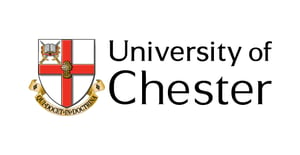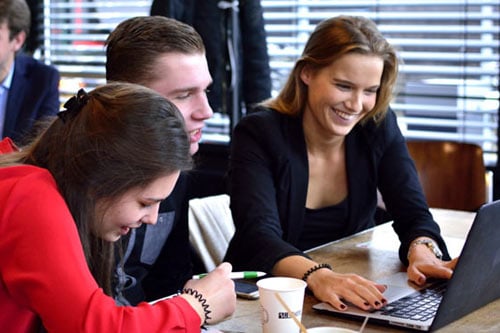The Master of Business Administration, commonly known as 'the MBA', is one of the most sought after degrees across the world. With many providers charging upwards of £45,000 per year, students see the MBA as their pathway to senior management or ownership of their own business.
Its value in teaching students the complexities of business management and leadership combined with hands-on experience in the form of placements, networking opportunities and career prospects have made 'the MBA' the gold standard of business management qualifications.
But with UK Higher Education taking stock of where it is and where it wants and needs to be after the turmoil of the pandemic, what does this mean for the coveted MBA?
We spoke with Alessandro Ferrazza, teaching on the MBA programme at the University of Sunderland in London (UoSiL); Dr. Greg Gannon, Director of Postgraduate Programmes at Richmond The American University in London; and Dr. Filippos Proedrou, MBA Global Course Leader at the University of South Wales to share their thoughts.
Changes in Programme Delivery
The impact of the pandemic sharpened the 'value for money' debate on degree programmes: can online tuition equate for the price and time invested?
"The biggest change and the biggest challenge, from both teaching and learning perspectives, is the switch from face-to-face to hybrid-based delivery." Alessandro explained when reflecting on the changes in his MBA programme. 
"Maintaining students' attention span in workshops and tasks has been a challenge. That has a direct reflection on the results students ultimately get. So while the content quality remains the same, the process in which students absorb that information has differed and led to different results from those on-campus and those remote-based."
Filippos also saw not only the change in the medium of instruction as a challenge but also how relevant the curriculum and taught content was in a world figuring out and adapting to the impacts of the pandemic.
"Virtual classrooms were a first for many students so there was a lot of big decisions on whether they chose to enrol or postpone their place. We also had to take a look at our curriculum and decide whether what we were teaching was relevant or not given the impact of the pandemic - many supply chains across many industries have been disrupted as a consequence so what we're teaching needed to adapt to this new environment."
Greg also refers to the impact of Covid but also the opportunities that arrived in reverting to online learning.
"Obviously Covid changed everything. The move towards using the VLE to enhance classroom learning and providing a platform for blended learning went into hyperdrive. Sceptics became converts overnight. Students and Faculty adapted to the potential of online teaching and learning very quickly. We missed the human contact of the classroom, but we found great opportunities using the platform for new kinds of teaching, learning and assessment. Many of which we have kept as we returned to the classroom."
So while programme delivery and curriculum content continues to adapt to new events, what can be said about intakes of new MBA students.
Student Recruitment - Challenges but opportunities, too
As with all degree programmes, student recruitment is vital. The MBA is one of the most competitive fields out there, owing largely to the financial value it brings to universities/business schools and the demand for it from broad, domestic and international student markets.
"Competition is much fiercer," Alex explains "with Brexit the European market is pretty much dried up with little access to funds and it's cheaper to study the MBA in Europe. We now need to deliver the value of the MBA to a wider, international audience."
Filippos' MBA Global programme is also geared more towards the wider international market.
"Our MBA Global students come largely from emerging economies, such as: Nigeria, India, Bangladesh, and Sri Lanka and it's here where we are seeing increases in recruitment."
However, one benefit to UK Higher Education as a whole has been the reinstatement of the post-study work visa, albeit named the 'Graduate route', opening the opportunities for international students to work or look for work two years after graduating (three for Doctoral students).
Filippos believes: "The new post-study work visa nudges students to 'try their luck' in the UK."
As for Greg, he sees student recruitment competitiveness as nothing new but now with the opportunity for new markets and partnerships opening up.
"Competition was always fierce. MBA students are well informed and discerning consumers. You cannot rely on reputation or successes in the past. New markets are emerging quickly for us. A large part of this is through a network of partnerships that we have been successful in creating.
Leaving the EU was certainly a blow for the sector. We have managed to put initiatives in place, such as our scholarships and partnerships, to ensure EU citizens feel welcome and to maintain the experience of studying in London that they have always enjoyed. The new graduate visa scheme is very attractive to MBA students who want to develop their career here in London after graduation. Career opportunities in London after graduation are always a common question during student interviews for the MBA."
Besides new opportunities from international markets, partnerships, and post-study visa incentives, new student segments outside of the traditional 'business graduate' demographic are also emerging.
Students from Non-Business Backgrounds
Many assume the stereotypical MBA student comes from industry, with some managerial experience, and ultimately holding a Bachelor's degree in a business-related discipline. However, a more recent trend, sparked from the 'Tech Boom' and other industries such as engineering, biological sciences, has seen more students enrolling from non-business backgrounds. This 'new' MBA student is one with the technical, scientific knowledge of their subject but lacking in business management knowledge. They recognise the value proposition of their product/service but do not possess the know-how of managing this product/service as a business. 
This is something Alessandro has observed, also.
"The type of students that apply for an MBA currently seem to be coming from a wider spectrum of disciplines. They recognise the value of an MBA which seems to drive the students’ desire to specialise in a variety of less common business disciplines and we are certainly gearing to support the students in achieving their, more specific, industry-related, objectives."
And it's a similar story for Filippos where teaching non-business graduates is quite common.
"A lot of our students do not come from business-related backgrounds. They are not managers, many come from engineering and HRM backgrounds and they see this as a way to go higher or setup their own business."
At Richmond University, the demographic is even more diverse as Greg explains:
"Recently we have had people with careers in medicine, in military, in education, in the arts, in NGOs, in local government, even a few university professors. What these people all have in common is that they have experienced how organisations work (and sometimes don't work) and they want to learn more about that. What they also have is a drive to enhance their leadership skills. Maybe they do not come from a commercial business, but they understand the importance of raising money, budgets, setting strategies, communication, stakeholder relationships, building effective teams. All these things are developed on our MBA."
Developing a New Type of Manager
The emergence and potential of remote-working may have largely been enforced during lockdowns but it was certainly not an unheard of proposition beforehand. Indeed within that comes the emergence of new working patterns, behaviours, and, not to be downplayed, skills.
Alongside this emergence, or certainly complemented by it, has seen the need for new managerial skill-sets, to steer the ship whether in troubled waters or not. Alessandro has observed this shift.

"There is more of an emphasis to have focussed managers that are able to empower their staff. Some organisations have a bi-fold focus: they seek managers that can grow the organisation but are more pragmatic and empathetic to empower their staff.
We've seen a significant shift from management to leadership in previous years and now we're seeing another shift to more soft skills, like cross-cultural and empathetic skills, being needed and expected of managers."
Filippos challenged his students to develop new managerial skills through a present-day, case study scenario.
"I scrapped the old activities and placed a real-world case study scenario for my students. Here students manage a chain of restaurants, the Covid pandemic hits, what are they doing with their employees? How are they communicating with their employees? Are they being furloughed? Are they being laid-off?"
"I'm not an advocate of going back to way things 'were'. Managers need to adapt to this new environment."
Greg also shares the same outlook on focusing on 'business futures' to develop new managerial skills.
"I think it is important to make sure the teaching and learning strategy encompasses skills and technologies that are not just current but forward looking. We need to consider 'business futures'. We need to equip graduates with not only the knowledge and skills currently valued by employers but also with the adaptability, open-mindedness, resilience, and commitment to lifelong learning that will keep them ahead of their field."
Placements - Remote Setting Opens New Doors
While challenges to online learning initially took place, an added benefit was the opening of new placement opportunities via remote working. Alex explained:
"We are coming out of a very convoluted and challenging time and hope to be in the clearing soon, that said there are a number of jobs now that are no longer requiring the full office presence. Employers are recognising that a hybridisation of the work place can be adopted and be more attractive to the future workforce.
Filippos also realised this added benefit to placement opportunities.
"Most placements took place in an online format. However, this had a bonus effect: students could take-up placements remotely in new, overseas countries many of which would've been physically difficult to place them."
Despite some trepidation about remote placements, Greg saw benefits to both the employer and student in this setting.
"I am a huge advocator of placements (or internships). For students who need to build a network or gain new experience they can be transformative. However, I was nervous about virtual internships. But they turned out to be really useful. They suited the needs of employers and students at the time. Moving forward maybe they will fit into a more flexible working environment. We have noticed an upturn here in London of providers looking for good quality placement students in the traditional workplace for 2022."
Where next?
So what lies ahead for the MBA in a world recovering from the global pandemic? Alessandro is using this time to take stock of the changes that have taken place, looking at new ways of delivering the programme through different pathways, too. 
"There are a number of options and opportunities to gain specific qualifications and we may be discussing a different way of delivery supporting the new trends and needs of the student base."
Filippos is planning for the future from a macro, geopolitical level, so MBA teaching embodies current and future global issues.
"It is our responsibility to systemise the challenges: digitisation, the US-China trade war, Brexit, Covid and the new era of epidemics and pandemics, climate change. We should prioritise global challenges and how these affect business management because every single company will have to adjust what it's doing. This in turn will have an effect on how we teach business management at any level, but particularly at MBA."
Greg is also reflecting on current and future trends and how these will feature in his MBA programme.
"The 'mega trends' that everyone is talking about such as technology, data analytics, AI, climate change, and ESG [Environmental, Social, and Governance] are becoming central to the curriculum. I think there will be a move to a human oriented curriculum with enhancements to well-being and happiness becoming core aspirations of a business education. Of course, the core business functions must remain, but I think they will pivot towards value not only in financial terms but in terms of social and environmental sustainability, as well."
In summary, the MBA, as with all degree programmes, will have to adapt to a 'new normal' of business management. Anticipating new issues and how these will affect business management will be crucial in developing students as effective business managers and in turn recruiting students to respective MBA programmes.
As Greg has pointed out earlier, MBA students are 'well-informed' and 'discerning'; MBA programmes need to be the same.
References
Nugent, T (2021) "How the MBA syllabus is Changing for the Future" Business Because; Accessed from: https://www.businessbecause.com/news/mba-degree/7755/mba-syllabus-future [Accessed on: 27/09/2021]
"Business trends 2021: Top management skills needed" IESU Business School, University of Navarra ; Accessed from: https://www.iese.edu/standout/management-skills-business-trends-2021 [Accessed on: 28/09/2021]
Thank you to Alessandro, Greg and Filippos for their contributions towards this blog post.

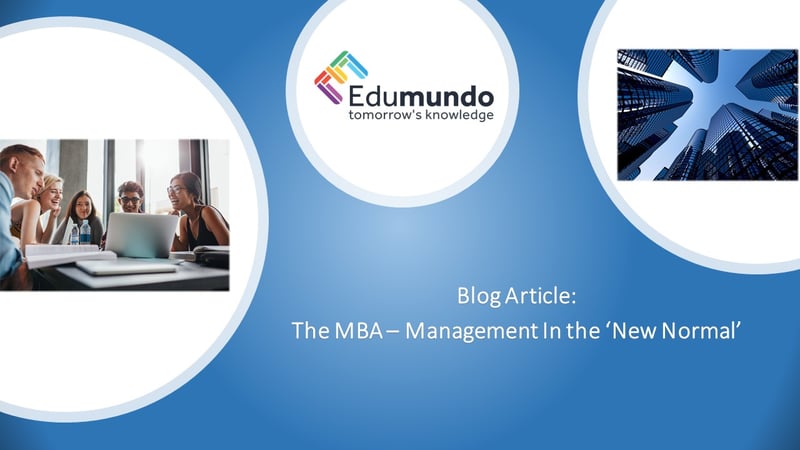
.png?length=300&name=unnamed%20(11).png)
.png?length=300&name=unnamed%20(7).png)
.png?length=300&name=unnamed%20(8).png)
.png?length=300&name=unnamed%20(6).png)

.png?length=300&name=unnamed%20(10).png)
.png?length=300&name=unnamed%20(5).png)
.png?length=300&name=unnamed%20(9).png)
.png?length=300&name=unnamed%20(4).png)
.png?length=300&name=unnamed%20(2).png)
.png?length=300&name=unnamed%20(1).png)
.png?length=300&name=unnamed%20(3).png)
.jpg?length=300&name=unnamed%20(2).jpg)
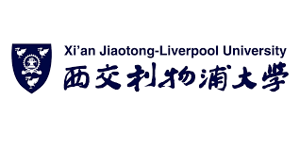

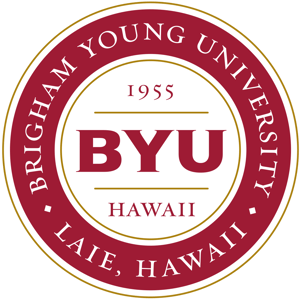

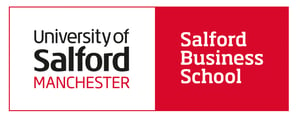
.png?length=300&name=loughborough-university-logo%20(small).png)

